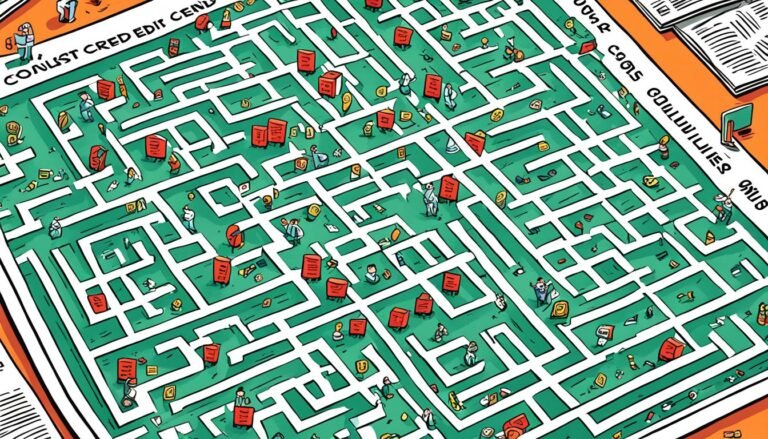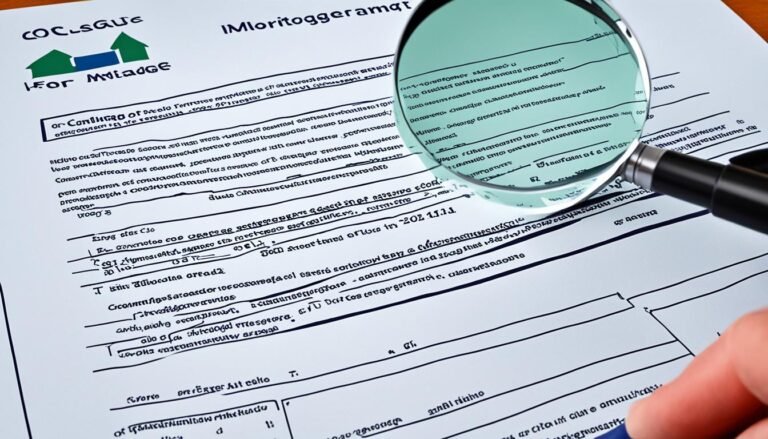Strengthening Governance: Key Requirements for Irish Banks
The Central Bank of Ireland has released five specific corporate governance requirements for Irish banks. These are aimed at improving how banks run things. They make sure banks follow the rules and meet high standards.
These requirements started being used on different dates, showing the Bank’s serious approach. For instance, some rules began on January 1, 2016, for certain types of insurance. Yet, different rules for investment firms kicked in on July 1, 2019.
The Central Bank isn’t just making rules; it’s offering a lot of help. For Credit Institutions, the biggest set of rules is 1027 KB in size. This shows the careful work into making sure everything goes well.
On January 16, 2019, the Investment Firms Q&A got its 7th edition. This was to make sure firms understand and follow the MiFID II Regulations better. It helps to keep the financial world clear and fair.
Key Takeaways
- The Central Bank of Ireland has issued five important governance documents for Irish banks.
- Compliance dates vary, with key dates on January 1, 2016, and July 1, 2019.
- MiFID II Regulations set clear rules for governance and financial safety.
- Its detailed publications help ensure banks and others follow the rules.
- The Central Bank is working hard to make sure governance stays strong.
Understanding Corporate Governance in Irish Banking
In Irish banking, corporate governance is all about following strict rules for making important decisions. These rules give decision-making power to boards, managers, and those with a stake in the bank. The Central Bank of Ireland set these rules in the Corporate Governance Requirements for Investment Firms and Market Operators 2018. They aim to promote good ethics, clear communication, and independent directors. All this creates a strong legal foundation that respects MiFID II and ESMA guidelines.
Defining Corporate Governance
Corporate governance is like a blueprint for how companies should be run. In Irish banking, it creates a detailed plan to encourage fair business practices, involve shareholders effectively, and ensure everyone takes responsibility. This plan makes sure that the people steering the bank (the boards, managers, and stakeholders) work well together. They build an atmosphere where trust and honesty thrive.
Legal Framework and Compliance
Banking governance follows strict laws that aim for excellence throughout the bank. Irish banks must follow the Central Bank of Ireland’s rules, the European Union regulations, and more, like EBA Guidelines. There’s also the Joint ESMA and EBA Guidelines on the suitability of top management under specific EU Directives.
The 2018 UK Corporate Governance Code is also part of the rules. Irish banks must stick to their own Corporate Governance Annex and explain if they don’t follow some UK Code parts about pay properly.
Important reports, like The Corporate Governance Statement, show how governance is working. They show what the Court Nomination & Governance Committee, the Court Remuneration Committee, the Court Audit Committee, and the Court Risk Committee do. These reports detail the oversight of investment firms.
Colleagues play a big role in upholding the bank’s governance. In late 2023, 82% of them took part in a survey, showing they’re more connected to the firm. This survey and other feedback tell us things are getting better at the bank. Employees mention feeling safer, like they belong, and enjoying new work styles.
A table below proves that Irish banks are improving their internal workings. It highlights better corporate culture and stricter adherence to governance rules. This data shows why it’s key to keep everyone engaged with these changes.
| Index | 2022 (%) | 2023 (%) | Change (%) |
|---|---|---|---|
| Engagement Index | 68 | 73 | +5 |
| Culture Embedding Index | 76 | 80 | +4 |
| Job Enjoyment Index | N/A | 7 | N/A |
| Advocacy/Recommendation Index | N/A | 7 | N/A |
| Pride in Working Here Index | N/A | 3 | N/A |
Essential Board Oversight Responsibilities
In Irish banking, board oversight matters a lot. It helps to keep the governance strong. A board that is well put together and values freedom and diverse knowledge makes better decisions bear more fruit.
Composition of the Board
A strong board needs the right mix of people. It should have mostly independent directors. This includes a mix of non-executive and group directors, fit for the PRISM Impact. Having such a mix ensures fair governance, keeping stakeholders in the loop.
Role of the Chairperson
The chairperson leads the board with a clear eye on fairness. They make sure discussions are open and everyone’s opinions are considered. This open-mindedness helps the board make smart choices. The chairperson also leads in keeping the board’s rules together.
Committees of the Board
Board committees keep things running well. They tackle important areas like audits and risks. These groups check the money, manage risks, and make sure everyone plays by the rules. They help the entire board work better and keep things honest.
| Key Control Areas | Focus |
|---|---|
| POG Policies & Procedures | Ensuring clarity and effectiveness in Product Oversight and Governance |
| Underwriting Controls | Embedding approved policy wordings in systems |
| Post-Implementation Reviews | Continuous assessment of exposures such as silent cyber risks |
| Risk Management Oversight | Managing risks, including climate change impacts |
| Board Oversight | Strong, effective oversight for new and existing products |
By following these rules and setting up these committees, boards can do their job better. It helps them support good business practices.
Strengthening Governance: Key Requirements for Irish Banks
In recent years, governance in Irish banks has gotten much stronger. This is mainly due to rules from the Central Bank of Ireland (CBI) and the Central Bank (Individual Accountability Framework) Act 2023. This act makes banks more accountable by clearly stating what each top leader must do. It impacts about 150 firms, setting clear rules for picking new leaders and planning for the future.
Irish banks must also follow the MiFID rules. These rules make banks always check they have enough money and safe assets against potential risks. By doing this, banks are better prepared for any tough times, like when the EU stress tested them. The results showed Irish banks were in a good financial shape, having enough money to keep operating.
Many things shape how banks are run. Here are some important ones:
- There are strict rules that all banks must follow perfectly.
- The Credit Union (Amendment) Act 2023 allows credit unions to offer more services.
- A big check on consumer protection laws is coming in 2024 to make people safer.
- Banks are watching out more for risks to keep the money system safe.
- There are more checks on things like keeping computer systems safe and avoiding conflicts of interest.
Now, online banks like Bunq and Revolut are becoming more popular. They offer services without physical branches, which many people like. Still, traditional ways to pay are more used, especially cash in Ireland, as shown by a BearingPoint survey.
The European Central Bank is focusing on making banks stronger. This includes looking at how they are run, how they deal with environmental and social risks, and how they use technology. As Irish banks follow these rules, they are aiming to be more open and safe for everyone.
Good governance and managing risks well help keep people’s money safe in the long run. This supports the goals of both Ireland and the whole of Europe.
Risk Management Frameworks and Internal Control Systems
Irish banks need to use strong risk management and control systems. This is to keep the financial sector safe. They follow strict rules set by the Central Bank to ensure financial health.
These banks must always check their money and risks. They keep enough money aside to stay safe if the money market changes.
Risk Assessment and Capital Planning
Evaluating risks and planning finances carefully are crucial parts. Banks predict how risks might affect their money. Then, they plan how much money to keep ready.
It is advised to have Audit and Risk Committees. They should have at least three outside experts to monitor these crucial tasks. Their mix of financial knowledge and risk skills helps make wise decisions.
Internal Audit and Compliance Functions
Internal checks and balance through audits are vital. They ensure that risk and control processes are working well. Audit committees need to meet and follow clear rules.
There’s also a group watching if laws are followed. They aim for open, honest practices, making sure that banks operate carefully. Together, these groups keep the financial world in Ireland safe and sound.
Source Links
- Codes | Central Bank of Ireland
- Regulatory Requirements and Guidance for MiFID Firms
- DETE Governance Framework 2023
- Corporate Governance Requirements for Investment Firms and Market Operators 2018
- In brief: banking regulatory framework in Ireland
- CBI's Thematic Inspection of Product Oversight & Governance
- The eight key effective corporate governance practices
- Banking Laws and Regulations | Ireland
- Enhanced governance, performance and accountability in financial services: the Individual Accountability Framework
- Navigating the ECB’s expectations: Strengthening governance in European banks
- DFA Internal Report Template








